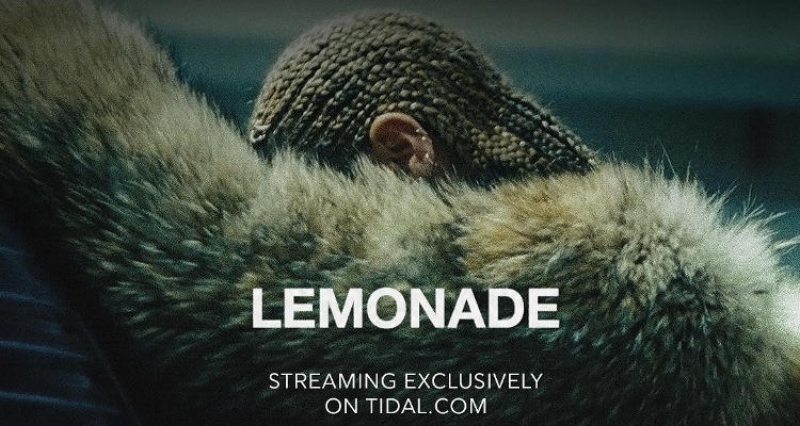Less than a year after news reports that Tidal might be on the hook for fraud due to the “intentional inflation of user play counts” on its platform, Norway’s National Authority for Investigation and Prosecution of Economic and Environmental Crime has confirmed an official investigation into the subscription-based music streaming service. Tidal – which rapper and music mogul Jay Z acquired in 2015 – first raised red flags in Norway, where its service is headquartered, after revealing the play counts for Kanye West and Beyoncé’s respective “The Life of Pablo” and Beyoncé’s “Lemonade” albums.
Kanye West’s “The Life of Pablo” album “had been streamed 250 million times in its first 10 days of release in February of 2016,” according to Tidal’s metrics, whereas Beyoncé’s “Lemonade” was streamed a whopping 306 million times in its first 15 days of release in April of 2016.
The problem? The numbers for the two highly-anticipated albums, both of which debuted exclusively on Tidal in 2016, did not necessarily add up, according to law enforcement officials and members of the media, as Tidal was said to have just 3 million subscribers at the time. Upon closer inspection, Tidal was accused of boosting the streams of the albums by Kanye and Beyoncé – who are both “artist owners” of Tidal, according to the company’s website – by “320 million false plays of songs … a manipulation that affected more than 1.7 million users.”
As Dagens Naeringsliv stated last spring, “User accounts and play counts obtained by [Norweigan publication Dagens Naeringsliv] revealed suspicious listening patterns, such as simultaneous playbacks of multiple songs by the same user or repeated playbacks of the same song at regular intervals.” In particular, “Two of the Tidal users contacted by the Norwegian publication appeared to have listened to tracks on ‘Lemonade’ 180 and 251 times, respectively,” over a 24 hour period. Those two users denied such activity last year. “No, that can’t be right,” one user, Tiare Faatea in Washington, DC, told Dagens Naeringsliv.
Thanks to such alleged manipulation – which Tidal’s counsel has denied and characterized as a “smear campaign” – both West and Beyoncé, along with their record companies, are said to have received a “disproportionate share of royalty payouts at the expense of other artists on Tidal.” This included a $4 million-plus payment from Tidal to Beyoncé’s label Sony for April and May of 2016, of which “Lemonade” accounted for $2.5 million; and a $3.8 million dollar payment to Universal, West’s label, $2.4 million of which was tied directly to West’s “Pablo” album.
Now, Norwegian authorities have begun a formal investigation into such claims of manipulation. To date, “At least four former Tidal employees (including its former head of business intelligence) have been interrogated in front of a judge [for a total of 25 hours] as part of the investigation.” As Engadget reported on Monday, “Of this group [of employees], three [of the] former staffers had apparently recognized signs of meddling with the Beyoncé and Kanye West albums,” and alerted higher-ups at the company before ultimately, resigning.
Tidal’s counsel said in a statement this week that the company “is not a suspect at this time nor has there been charges filed [against it].”
Tidal’s legal woes are not exclusive to Norway, though. The subscription streaming service – and Kanye West, himself – were named in an $84 million class action lawsuit in April 2016, alleging that they “fraudulently induced consumers to subscribe to Tidal” under the guise that West’s “The Life of Pablo” album would exclusively be available on that platform. According to plaintiff Justin Baker-Rhett’s lawsuit, West fraudulently promised fans in a February 2016 tweet that his album would only be available on Tidal. As a result, “consumers were uniformly tricked into handing over their private data and credit card information by a singular mistruth.”
Baker-Rhett’s suit notes, “Contrary to Mr. West’s representations, the purportedly ‘exclusive’ access to The Life of Pablo that Tidal subscribers were promised was short lived. A month and a half after The Life of Pablo’s initial release, Mr. West made the album available through Tidal’s biggest competitors, Apple Music and Spotify. He also began selling the album through his own online marketplace.” As a result, the statements made by West and Tidal – which they made “knowing that Tidal was in trouble but not wanting to invest their own money to save the company” – were little more than examples of “deceptive marketing” aimed at getting “millions of” individuals to sign up for the service. And it worked, the suit claims that Tidal’s subscriber base tripled from 1 million to 3 million in the 6 weeks following West’s tweet.
That case is still underway in a New York federal court.











